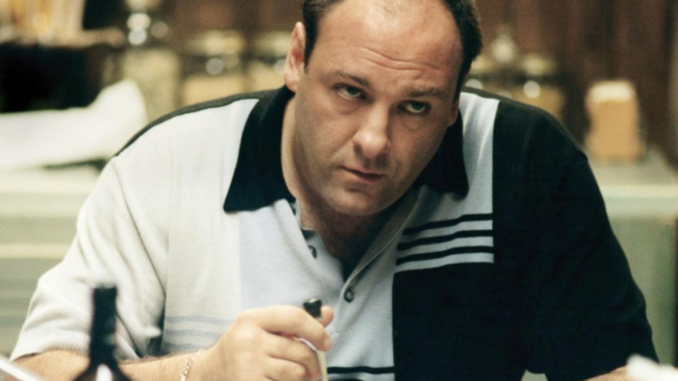
The Creation of Tony Soprano: A Mosaic of Influences
Tony Soprano isn’t just a mob boss; he’s a complex character layered with psychological depth, family struggles, and moral dilemmas. David Chase, the creator of The Sopranos, crafted Tony as a composite of various influences. Growing up in New Jersey, Chase was surrounded by stories of organized crime and the unique culture of Italian-Americans in the area. His experiences became the fertile ground from which Tony’s character sprang.
The Real-Life Mobsters Behind Tony
While Tony Soprano isn’t a direct portrayal of a single person, many believe he draws heavily from real-life figures, particularly the infamous Vincent “Vinny Ocean” Palermo. Palermo was the boss of the DeCavalcante crime family, which operated in North Jersey. The parallels between Palermo’s life and Tony’s storylines are uncanny. Like Tony, Palermo had his hands in construction rackets, faced internal family conflicts, and ultimately turned informant when the heat got too intense.
Vincent Palermo: The “Real-Life Soprano”
Vincent Palermo’s life story reads like a script straight out of The Sopranos. He navigated the treacherous waters of mob life, dealing with everything from power struggles to the ever-present threat of law enforcement. Palermo was deeply involved in legitimate businesses, much like Tony, who juggled his mob responsibilities with family life and personal struggles. His eventual decision to flip and enter witness protection adds another layer of intrigue, echoing Tony’s own battles with loyalty and betrayal.
Family Ties: More Than Just Crime
At the heart of Tony’s character is his complex family life. His relationship with his mother, Livia Soprano, is a central theme in the series. Chase has mentioned that Livia was inspired by his own mother, reflecting the intense dynamics of Italian-American families. This connection gives Tony an emotional weight that transcends the typical mobster archetype.
The Struggles of Balancing Family and Crime
Tony’s life is a delicate balancing act between his obligations to his family—both biological and criminal. He often finds himself caught between the demands of his mob life and his duties as a father and husband. This duality makes him relatable and adds depth to his character. In many ways, Tony’s internal conflicts mirror those of ordinary people, despite his extraordinary circumstances.
The Cultural Context: Italian-American Life in New Jersey
The Sopranos isn’t just a mob show; it’s a commentary on Italian-American culture, identity, and the American Dream. Chase infused the series with elements of his upbringing, showcasing the unique experiences of growing up in a New Jersey neighborhood where the mafia was part of the landscape.
The Italian-American Experience
The show explores themes like family loyalty, honor, and the pursuit of the American Dream through the lens of Italian-American culture. Tony embodies the struggle of many immigrants who sought a better life while grappling with the shadows of their past. The show does an excellent job of portraying these conflicts, making it relatable to a broader audience.
The Impact of Stereotypes
While The Sopranos brought the mafia into the living rooms of millions, it also sparked conversations about stereotypes and the portrayal of Italian-Americans in media. Chase’s nuanced writing helped to counter some of the more one-dimensional portrayals, providing a more humanized view of individuals involved in organized crime.
From Fiction to Reality: The Sopranos’ Influence
The Sopranos changed the landscape of television, influencing countless shows that followed. Tony Soprano became a cultural icon, symbolizing the anti-hero trend that has dominated modern storytelling.
The Rise of the Anti-Hero
Before Tony, most television characters were black-and-white moral figures. Tony blurred those lines, making audiences question their own ethics. He is a criminal, yet we find ourselves rooting for him. This complexity paved the way for future characters like Walter White in Breaking Bad and Don Draper in Mad Men.
The Lasting Legacy of Tony Soprano
The impact of Tony’s character extends beyond entertainment. He opened discussions about mental health, family dynamics, and the intricacies of identity. Tony’s struggles with anxiety and depression resonated with many viewers, showcasing a vulnerable side that was rarely seen in male leads at the time.
Conclusion: The Enigmatic Legacy of Tony Soprano
Tony Soprano stands as a testament to the power of storytelling. While he may not be based on a single real-life mobster, his character is deeply rooted in the complexities of both fiction and reality. Through the lens of the mafia, The Sopranos explored profound themes of family, loyalty, and the human condition, all while keeping audiences on the edge of their seats.
As we reflect on Tony’s journey, it’s clear that his legacy transcends the boundaries of television. He remains a symbol of the intricate dance between morality and the choices we make, both in crime and in life.
